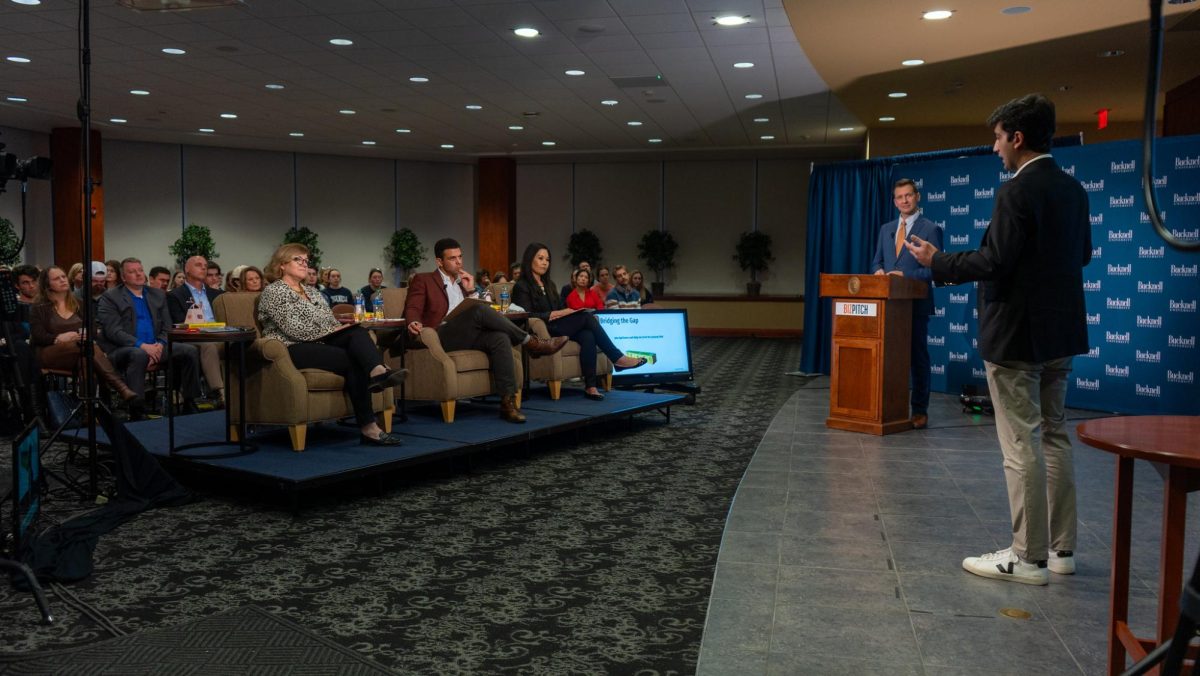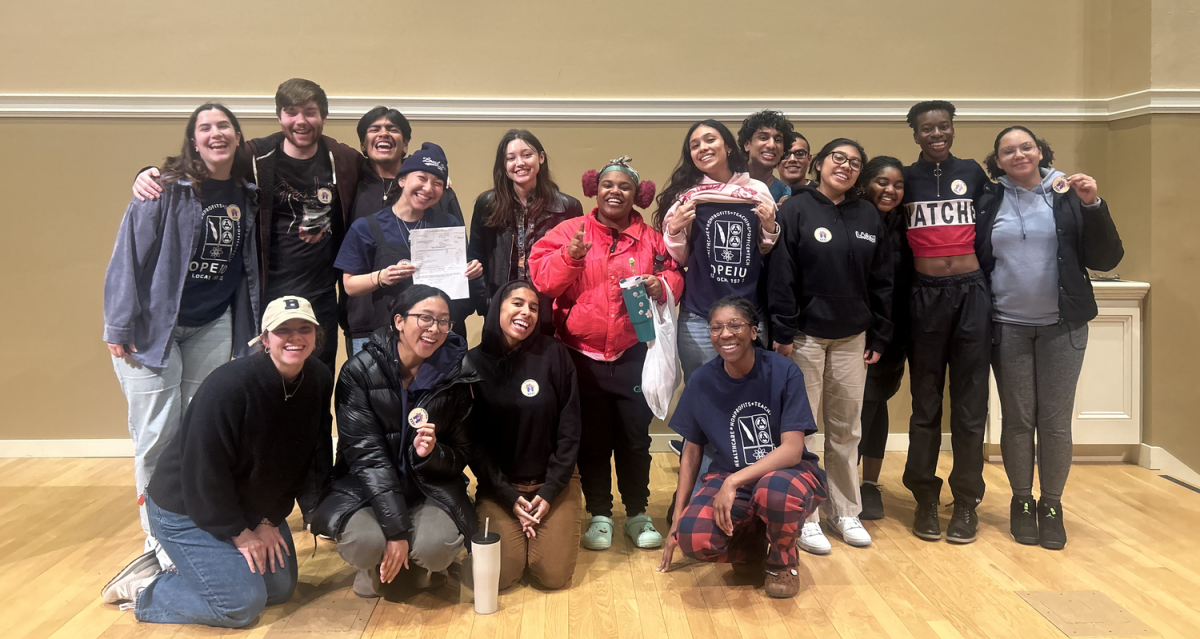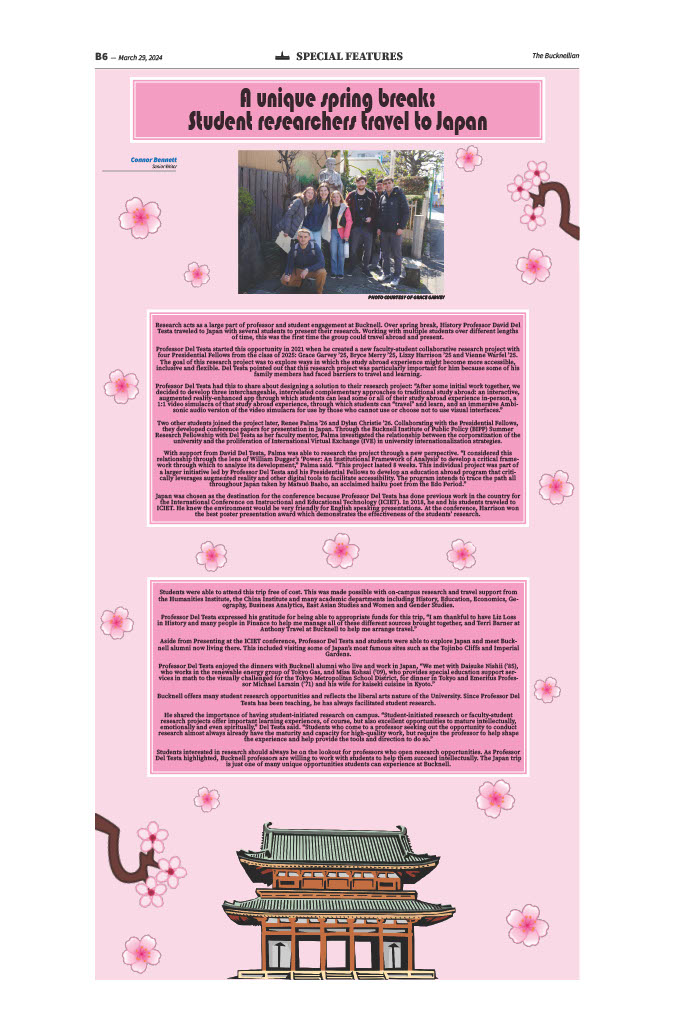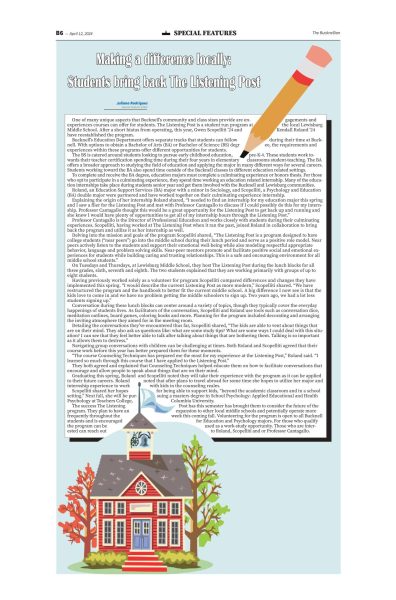How child development can be enhanced by the practice of yoga
September 22, 2016
“Never give up, always let go,” is one of Andrea Laubstein’s ’11 favorite mantras to live by, and it is one that she learned from her practice of yoga. She has since devoted much of her life to passing on this pearl of wisdom to children, as she believes it positively impacts their development.
In Laubstein’s talk, titled “Looking Within: How Yoga Can Transform Children’s Views of Themselves and The World,” she was able to impart some of her knowledge onto students and faculty. The event was part of the Department of Psychology’s fall speaker series, “Improving Children’s Lives: Psychology Alumnae Describe their Work,” which will feature the experiences of female alumnae who were psychology majors at the University.
“I was thrilled by the turnout to this first event in the Improving Children’s Lives Series, reflecting strong interest in the topic as well as international work with children. In addition to many students, we had faculty from multiple departments and staff attending,” said Professor of Psychology Chris Boyatzis.
The decision Laubstein made to study child development in college is proof that, as Boyatzis puts it, “your courses can have a life-changing effect on you.” Laubstein participated in both the Bucknell Brigade program in Nicaragua and the Bucknell in Denmark program, both of which helped solidify her passion in child development. As creator of the Denmark study abroad program, Boyatzis says this result “makes [his] heart happy.”
Laubstein graduated from the University in 2011 before embarking on trips to Thailand, South Korea, Nepal, and India, where she teaches yoga to both children and future instructors.
Much of the insight that Laubstein is able to pass down to her young students can easily be applied to college students. For example, she teaches children to practice mindfulness: being totally present in the current moment without worrying about the past or the future. Laubstein affirms that yoga can be an effective means to achieving mindfulness as it is the “art of controlling the fluctuations of the mind.”
Another piece of sagacity that yoga has revealed to Laubstein is the need to look within oneself for happiness instead of attempting to find it through external sources, such as food or money. She laments the fact that current educational models are essentially “teaching children to be unhappy” by stressing that the only path to success is to get good grades, get into a good university, and then get a good job in order to make enough money for the rest of your life. These external sources of happiness are fleeting, and we end up needing more and more of them to maintain our current state of happiness. Instead, Laubstein argues, we should be teaching children to look inwardly, an ability that can be achieved by practicing yoga.
She also stressed yoga’s universality, which is evident in her ability to teach yoga to Indian children, despite the language barrier. She believes yoga can better the lives of children in every culture; the only thing instructors must do is focus on what children need in their development and find a way to include this in the practice of yoga. However, Laubstein feels that no matter how much these exercises benefit children, what’s most impactful is how she conveys and thus transfers her personal experiences with yoga onto them.
Laubstein leaves for India again on Sept. 23, where she will continue teaching children and training instructors.
“It was a really cool experience to hear about a Bucknellian’s experience after graduation that is so unconventional. As someone who also did the Bucknell in Denmark summer program, it was really inspiring to see how much it impacted her life post-graduation,” Mikayla Berliner ’18 said.























